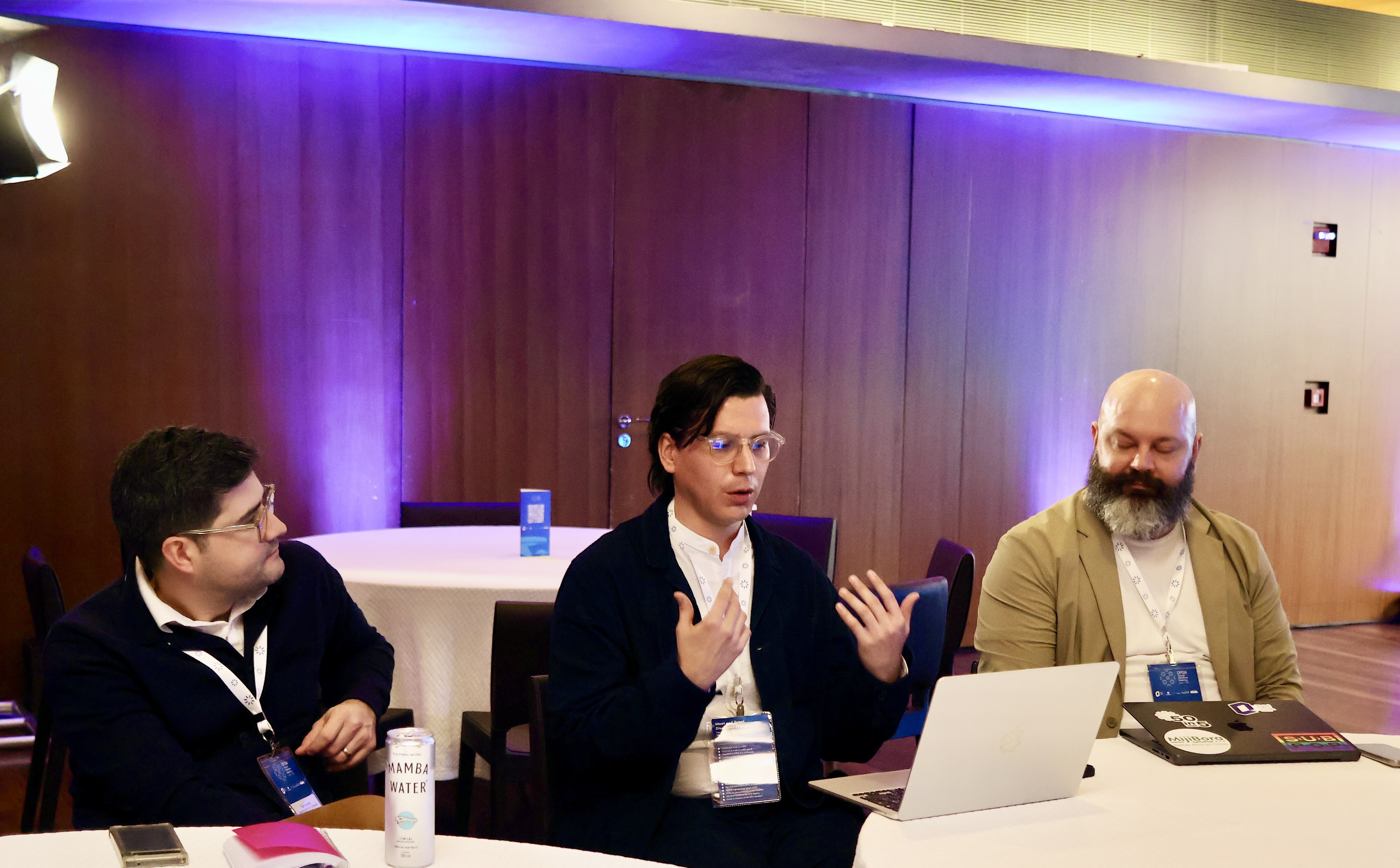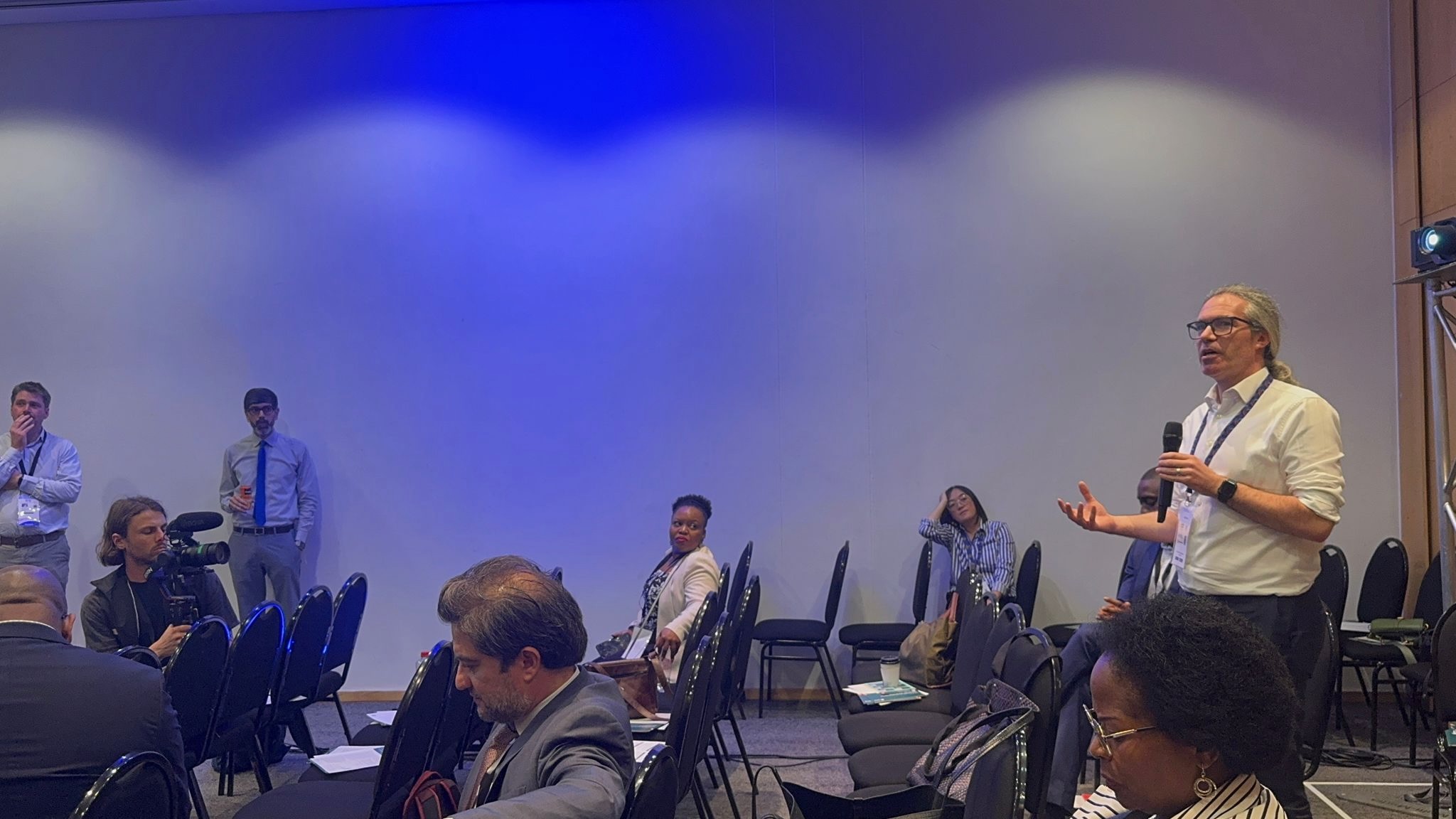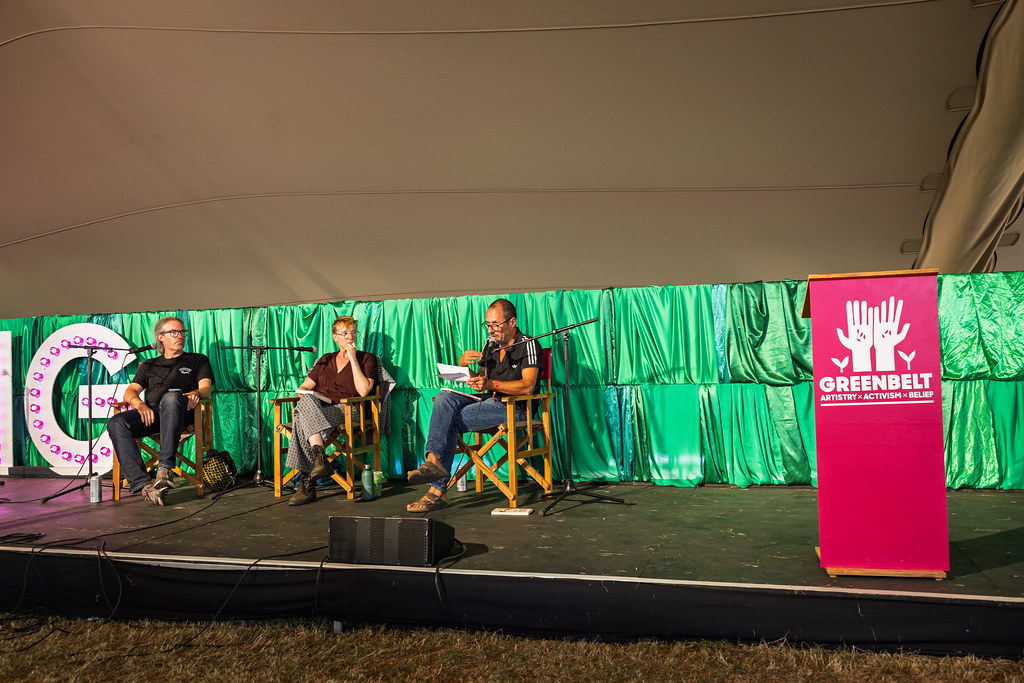Blog posts
Collected posts from the various blogs I’ve contributed to since 2002.
Collected posts from the various blogs I’ve contributed to since 2002.

There are growing questions about how we ensure new digital infrastructure and the open source software that’s available to support it are adopted, financially sustained, and managed in a way that increases government agency. The search for answers has drawn a lot of attention to the concept of Open Source Program Offices (OSPOs), a structure that’s been adopted in a number of technology-forward organisations over the past fifteen years. An OSPO is a corporate entity that is responsible for managing and coordinating an organization’s open source activities. The OSPO can be seen as the central nervous system for an organization’s open source strategy, and it provides governance, oversight, and support for all things related to open source. ...

In the midst of an intense but excellent week at the 2025 Global Digital Public Infrastructure summit in Cape Town, my colleague Lauren Kahn and I helped shape and run a session with a public finance focus. Coming at the end of the conference it was a chance for participants to explore how they might take the ideas and energy from the event and apply it to reforming any/all aspects of public finance: from how we think about tax, to how we ensure compliance, to how public services receive appropriate and timely funding. ...

Great to be back at the Greenbelt Festival again a couple of weeks ago. I’m often involved behind the scenes at the festival, but this year Kester invited Hannah and I to join him for an AI-inspired panel. His write-up was: In the late 1950s, Marv Minsky, one of the early pioneers of Artificial Intelligence, excitedly turned to a colleague and gushed, “We’re going to make machines intelligent. We are going to make them conscious!”“You’re going to do all that for the machines?” his colleague replied. “What are you going to do for the people? ...

It’s been a couple of weeks since I was briefly in DC for the World Bank and IMF spring meetings, but not too late to share a few highlights. Center for Global Development’s session on European collaboration in the midst of aid cuts was frank and helpful, reflecting a renewed emphasis on addressing some of the systemic problems in global financing. There’s a constant discussion of the need for better coordination, but beyond coordination it’s clear there’s also a need for leaner, test+learn approaches to getting things done. Centre for Digital Public Infrastructure - CDPI and Digital Impact Alliance a group of us together to mark the launch of CDPI’s new vision paper on Verifiable Credentials - https://vc.cdpi.dev : simple and consistent ways for you to demonstrate your eligibility and qualifications. The focus on credentials is a really welcome addition to the Digital Public Infrastructure conversation with a real focus on user-centricity and clear options to start small and scale. ODI Global’s launch of a new report on emerging themes in digital-era public finance marks a next step in our joint work on the Digital Public Finance Hub, looking across the field for common challenges and opportunities. Needless to say there’s lots of interest in AI and lots of issues with procurement, but there’s more too. Ameya Ashok Naik’s got a great write-up of the event Co-Develop and Omidyar Network hosted a discussion between Nandan Nilekani and Michele Lawrence Jawando on digital public infrastructure and AI. It was a refreshingly pragmatic conversation, reflecting the rapidly changing nature of the technologies and many unknowns about their use, while noting the need to maintain situational awareness and be experimenting to work out how to ensure the technologies can be governed and harnessed for public good, not private capture. As ever there was far more going on than it was possible to fit in. Many friends and events missed. But great to see positive movements amid the chaos.

When adopting new technology, many leaders worry about “vendor lock-in.” While this concern is understandable, I find it more useful to shift the conversation towards the cost of change instead. I talked about that a little at the DPGA Annual Members Meeting in Singapore last year, and it’s time to expand on that. These discussions often arise when organisations consider working with a new technology provider. Leaders recognise that new technology models require new management approaches. The move to on-demand cloud services, for example, isn’t just a technical shift—it also transforms how costs are managed. But resistance to change is often shaped by years of frustration, where past decisions (and sometimes limited market options) have constrained flexibility. ...

Public Digital isn’t usually in the business of making and running software, or of creating our own tools where simple cloud-based alternatives exist. But a few years ago, to support our Signals publications I decided to exercise those muscles and did just that. This is Public Digital’s URL shortener, a tool which preserves user privacy and is open source. I realised we’d never really explained it, so here’s the background. Most of PD’s writing is born on the web. It’s full of links to examples, more explanations and other interesting stuff. That’s great when we’re writing for the web, but doesn’t work so well when we’re printing books and people have to type in URLs instead of clicking links. ...

In 2023 Public Digital was asked to support an international institution studying the impact of digitisation initiatives in public finance. They were drawing together a range of data and case studies but as we worked through them it was clear that the initiatives they were looking at took widely ranging approaches to transformation and to technology. For the analysis to be useful we needed some way of classifying the approaches taken in each case study. ...

I was in Singapore last week for the Digital Public Goods Alliance Annual Members Meeting, with Public Digital colleague Sechi Kailasa. It was good to feel the energy of the community and see it growing with the addition of Asian Development Bank (ADB), Open Future Foundation and the Government of Uruguay/AGESIC. It was great to see more emphasis on building capability better policy environments in government, and making smarter use of the private sector support. A highlight for me was joining Ambassador Nele Leosk from Estonia, Vice-Minister Armando J. Manzueta Peña Manzuela from Dominican Republic and Aura Cifuentes from Co-Develop for a discussion on making change happen in government as part of the D"igital Public Goods for Digital Public Infrastructure" (DPG4DPI) track. ...

Last week five of us from Public Digital – Blessing, Sechi, Abisola, Lauren and I – attended the inaugural Global Digital Public Infrastructure Summit in Cairo. We were delighted to be among representatives of 101 different countries including ministers, ambassadors, civil servants, civil society groups, and our fellow private sector members discussing how to accelerate the deployment, uptake and impact of digital infrastructure. ...

Contributing to the final day of the World Bank’s “Climate Smart Public Finance” conference in Cairo, Lauren Kahn and I presented some of what we’ve learned from the past decaces of digital transformation that can aid green transition. We looked at how starting small, scaling what works and building movements are as relevant to the daunting challenges of the green transition as they’ve been for successful digital initiatives. More on the event on the World Bank site